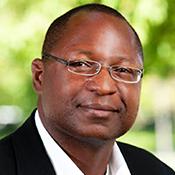Request Information
Ready to find out what MSU Denver can do for you? We’ve got you covered.
There is so much more to this degree than catching bad guys.
As a student studying for a bachelor of science degree in Criminal Justice and Criminology at MSU Denver, you’ll explore the cause and effects of criminal behavior and victimization from white collar crime and human trafficking to cybercrime and serial killings as well as study the three arms of America’s Criminal Justice system, law enforcement, courts and corrections. Plus, you will critically examine how social justice is administered in a diverse and global society, including the firsthand comparison of our system to that of the Netherlands, South Korea and the United Kingdom.
MSU Denver’s Criminal Justice and Criminology department has a substantial internship program that includes placements in probation and parole departments, public defender and district attorney offices, police departments, sheriff offices and other ancillary agencies such as halfway houses, safe houses and rape awareness and assistance programs.
Our Criminal Justice and Criminology faculty is as diverse as any in the nation, with each professor bringing substantial teaching and/or professional agency experience to their classrooms.
MSU Denver’s Criminal Justice and Criminology core curriculum is consistent with Academy of Criminal Justice Sciences (ACJS) national standards for a criminal justice baccalaureate degree.
Recognized for their expertise, eight Criminal Justice and Criminology faculty members have been asked or elected to city- and state-level boards, including the Governor’s Colorado Juvenile Justice and Delinquency Prevention Council, the Colorado Sex Offender Management Board, Colorado Commission on Criminal and Juvenile Justice, the Denver Community Corrections Board, City of Denver Crime Control Commission and the Colorado Faculty Advisory Council.
MSU Denver is located on the Auraria Campus near Downtown Denver. Its proximity to the City and County of Denver’s Criminal Justice departments, including the courts and jail, allows for easy access for students participating in internships with city agencies.
You may also have the opportunity to participate in Delta Gamma Xi, the Criminal Justice and Criminology honors society. Members strive to keep abreast of the advances in scientific research, elevate the ethical standards of the criminal justice professions and sustain in the public mind the benefit and necessity of education and professional training.
Please click on the link below to visit the Internships & Volunteer Opportunities page.

As a Criminal Justice and Criminology graduate, you’ll have a wide range of career opportunities (some that require post graduate degrees) with the most common jobs being:
The U.S. Bureau of Labor Statistics 2023 Occupational Outlook Handbook lists the following examples of median salaries for Criminal Justice and Criminology careers, some that require a postgraduate degree:
 Allison Cotton, Ph.D.
Allison Cotton, Ph.D.
Professor Allison Cotton is a two-time Fulbright Scholar whose publications range in subject from issues related to the death penalty, eye-witness identifications, lethal behavior and expert witnesses to issues around race, class, gender and crime. She is author of “Effigy: Images of Capital Defendants” (2008, Lexington Books) and co-author of “Class, Race, Gender & Crime: The Social Realities of Justice in America” (4th edition, July 2014, Rowman & Littlefield Publishers.)
 Henry Jackson, Jr., Ph.D., M.P.A.
Henry Jackson, Jr., Ph.D., M.P.A.
Professor Henry Jackson’s research interests explore the relationship among race, class and punishment as well as racial profiling. His work appears in the peer-reviewed journal Justice and Research Policy, McNair Scholars Research Journal and Crime and Justice in America: An Introduction to Criminal Justice Studies. He currently serves on the City of Denver’s Crime Prevention and Control Commission.
 Denise Mowder, J.D., Ph.D.
Denise Mowder, J.D., Ph.D.
Professor Denise Mowder is an attorney and former prosecutor in Oregon who, for over 10 years, specialized in prosecuting cases of domestic violence, child abuse and sexual assault. Her expertise is in trial practice, investigations and victim advocacy and her research focuses on the impact of current immigration law and the undocumented battered Latina woman and the wrongful conviction of the factually innocent.
“The best part of the CJC program is the fabulous team of faculty! Each one of them has experience in different aspects of our field. The know what it takes to be successful in Criminal Justice and they want us to be successful, too!”
-Carlie Brockmann
Criminal Justice and Criminology graduates have been accepted for post-graduate study at the University of Kansas, University of Denver and the University of Colorado Denver, among other higher education institutions.
CJC Academic Advisors
Phone: (303) 615-1099
CONTACT YOUR ADVISOROffice Location & Hours
We are located in the Administration Building, Suite 310.
In-Person Hours: Monday, Tuesday, Wednesday, and Thursday 8:30 a.m. – 4:30 p.m.
Virtual Hours: Friday 8:30 a.m. – 4:30 p.m.
Mailing Address
Department of Criminal Justice & Criminology
Metropolitan State University of Denver
Campus Box 10
P.O. Box 173362
Denver, CO 80217-3362